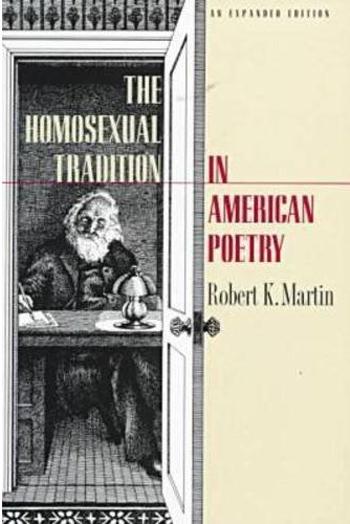One of Canada’s most celebrated gay academic trailblazers, Robert K Martin, has died after a 12-year struggle with Parkinson’s disease.
Martin was a professor in the Department of English at Montreal’s Concordia University from 1967 to 1992. He was well-known in academic circles for his groundbreaking 1979 book, The Homosexual Tradition in American Poetry. Noted author Leslie Fiedler praised the book at the time as “the first full-fledged attempt by a gay critic to put the gay writers of the American past into proper perspective.”
A graduate of Brown University, Martin came to Canada to avoid the draft for the Vietnam War. While at Concordia he published articles about gay and lesbian authors, helping to pave the way for more of a focus on gay and lesbian studies and, ultimately, queer studies.
In 1988, Martin and Concordia professor Thomas Waugh taught a course called Sexual Orientation and Representation, about how homosexuality was portrayed in both literature and cinema. The course was the first of its kind in Canada. I was lucky enough to be one of the students in the class, and Martin introduced me to the work of a number of gay and lesbian authors. He was an inspiring teacher and always took great interest in my work as a journalist.
In an interview Martin gave in the early ’90s, he recalled doing gay-focused academic work in the early ’70s. “You have to remember, though, that at this point people were still very careful about having their names used publicly,” he said. “There was still great danger of people without tenure being fired.”
In 1992, Martin left Concordia to become chair of the English department at the University of Montreal, where he is credited with greatly expanding and improving the program.
“Robert was a great pioneer, one of the heralds of queer studies in his study of American and English literature and its unrecognized homo currents,” says Waugh. “He was also a loyal colleague and resourceful collaborator: teaching our course on gay film and literature together in 1988 was an electric learning experience for myself as well as for our students.”
Waugh also recalls that Martin played a pivotal role in convincing administrators at Concordia to provide same-sex spousal benefits.
“When we went to battle with our board of governors and even our own homophobic faculty union in the late ’80s over same-sex spousal benefits, Robert was on the front line and would not take ‘no’ for an answer. We won that one, due in large part to his persistence and wisdom. I will miss him deeply.”

 Why you can trust Xtra
Why you can trust Xtra


